日本が誇る超絶技巧アコーディオン奏者!インタビューVol.2は檜山学さんです。
※経歴・ライブ・活動情報及び英訳インタビューは文末にございます。(English translation is below,after the Japanese interview.)
――檜山さんはとくに技術面を高く評価されていますが、ご自身が目指すアコーディオニストっていますか?
うーん、今はいないです。 言い方難しいですが、昔は、こんな風に弾けたらいいな、とか、こんな人になりたいっていうのがありましたけどね。凄く素敵なプレイヤーは沢山いますが、今は誰かのように、、、を目指している感じではないです。
――アコーディオン奏者として第一線を走っていて、苦労したことや苦悩することはありますか?
アコーディオンをやる人は、みんな感じることだと思いますが、持ち運び!!これは苦難です(笑) 特に飛行機!ま、それはさておき、アコーディオンって、珍しい部類に入る楽器だと思うので、演奏上の難しさを理解してもらい難いことですね。「ピアノが弾ければ弾けるんでしょ」とか、「立って動きながら演奏できるから楽しそう」とか。バカにしてんのか!って思う時があります(笑)国によっては、「あれは三文ピアノだ」って言う人もいますしね。もっとアカデミックな楽器なんですけどね。でも、そんなの吹き飛ばせるくらいの凄い演奏ができればいいですね!
――アコーディオンをやっていたから出会えたことってありますか? また、変わった仕事や印象に残ったことは?、
今の繋がりのある人は、ほとんどがアコーディオンを通して出会ってますね。子供の時からずっとやってるんで、もしやってなかったら、、を想像できないくらいです。ただ、普段はテレビの中でしか観ることのできない方たちや、憧れていた〇〇さんと一緒のステージに立てた!なんていうのは、この仕事をしていたお陰だと思います。まさに今回の写真撮影もそうですね。子供の頃の憧れである、一番星のトラックと!!好きで好きでたまらない映画のセットで撮影してるのと同じですもんね。そして、ある時は、自分がフロントに立って演奏し、またある時は、人様のバックで演奏をする。同じライブでもいろんな景色が見えるんです。ま、これはアコーディオンに限ったことじゃないですが。毎回印象的というか、興味深い仕事だと思います。
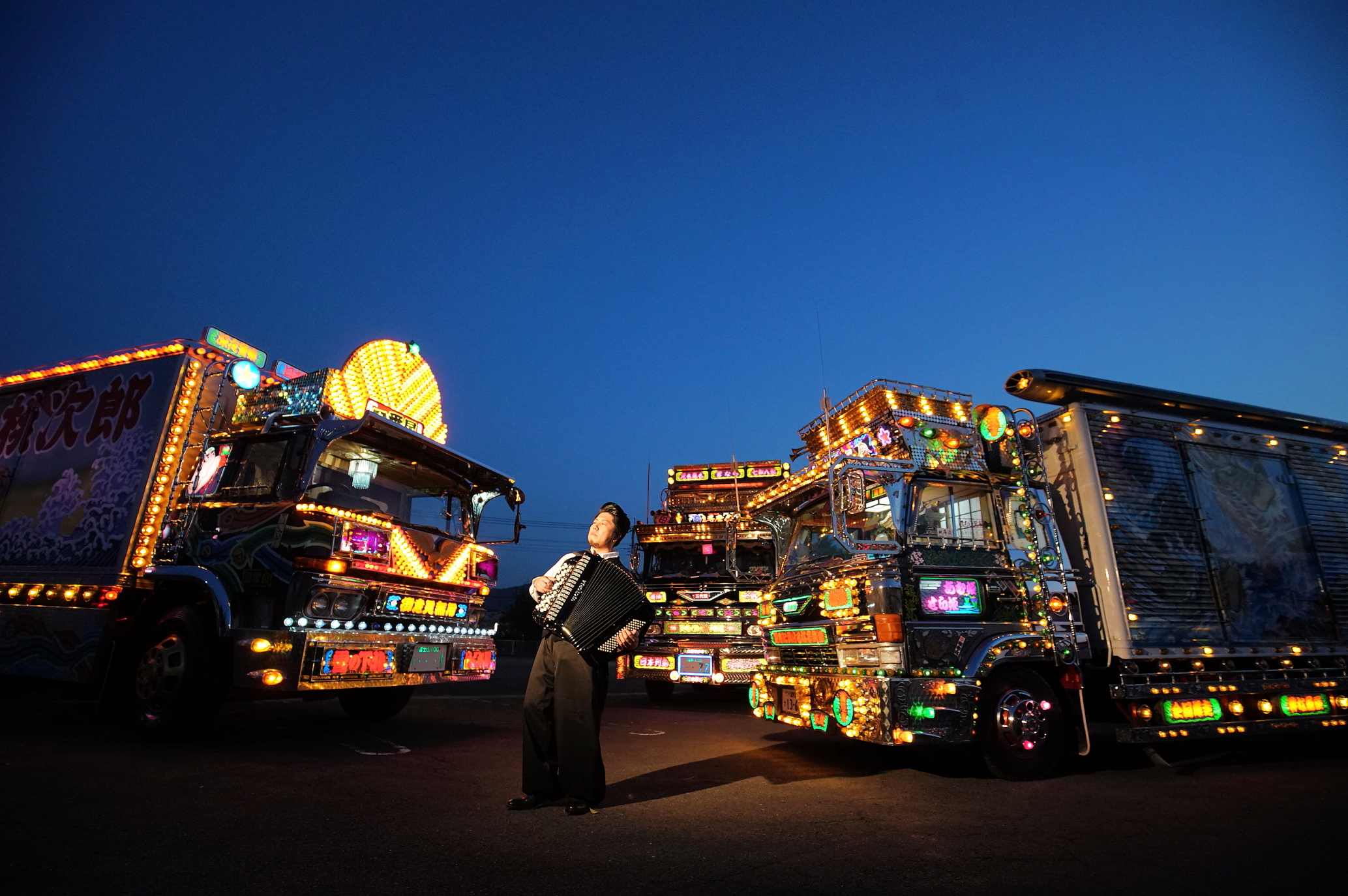
――結構アコーディオンって社会人になってから始める人もいたりしますが、上達のコツって何だと思いますか?
まぁ、練習するしかないんですが、、、それを言っちゃおしまいですよね(笑)そうですねぇ・・・・・まずはこの楽器が大好きであることですね。好きに勝るものはないですから。好きであれば、探求心があり、いろんな動画、音源、生演奏を沢山観て聴くでしょうし。そして、物マネをすることは大切だと思います。まずは、マネから入る。どんな弾き方をしているかをしっかり観て、聴く!そして、どんな演奏がしたいのかヴィジョンを持つことも大切ですね。どんなに素晴らしい先生に習っていても、自分自身から発生される探求心がなければダメですからね。
――イタリア、フランスと留学されていましたが、留学前と後で音楽性や価値観は変わりましたか?
音楽性は、、、成長してたら嬉しいですが。イタリアが初の外国で、その後にフランスに行きました。恥ずかしながら、それぞれの国に染まりたいと思った時期があり、でも日本人であることを強く意識した時期もあり、その時々でいろんな価値観が生まれては去る・・・みたいな経験をしましたね。今は正直、人間として成長したとか価値観が変わったとか、それが音楽に影響してるとかは、よくわかりません。このままでしか生きれないのでこのままです(笑)
――なるほど。海外に留学した経験がある檜山さんから見て、日本のアコーディオン教育についてはどう思われますか?
音楽的なことを教える先生は少しずつ増えてる感じがしますが、演奏技術をしっかり教える人がもっといてもいい気がします。より合理的に弾ける技や、指の動かし方や、蛇腹の扱い方など!あと、この弾き方の方がカッコいいとか、このポジションの方が美しいとか、ステージでの見え方とか、そのようなものを気にするのも大切だと思っています。
――確かに教育の場って日本はまだまだ全然少ないですよね。最後にこれから始める人にメッセージをお願いします。
次世代のSTARを待ってるぜい!!!
と言いたいですが、まじめな話、、アコーディオンという楽器を単なる珍しい色物として見ないでほしいです。難しい事をやる必要はなく、ただ楽器としっかり向き合う人が出てくるといいですねー。他の楽器では当たり前でも、日本のアコーディオンの世界ではまだまだ少ないです。奇をてらわず、普通の事が普通に弾ける、そんな安定感のある演奏者をまずは目指してほしいです。誰でもできることをちゃんとやる。何を弾くかも大事だが、どう弾くか。砂の上じゃ、どんなにカッコいい家を建てても崩れますしね!何事も基礎でっせ。
うまい(笑)
――ありがとうございました!
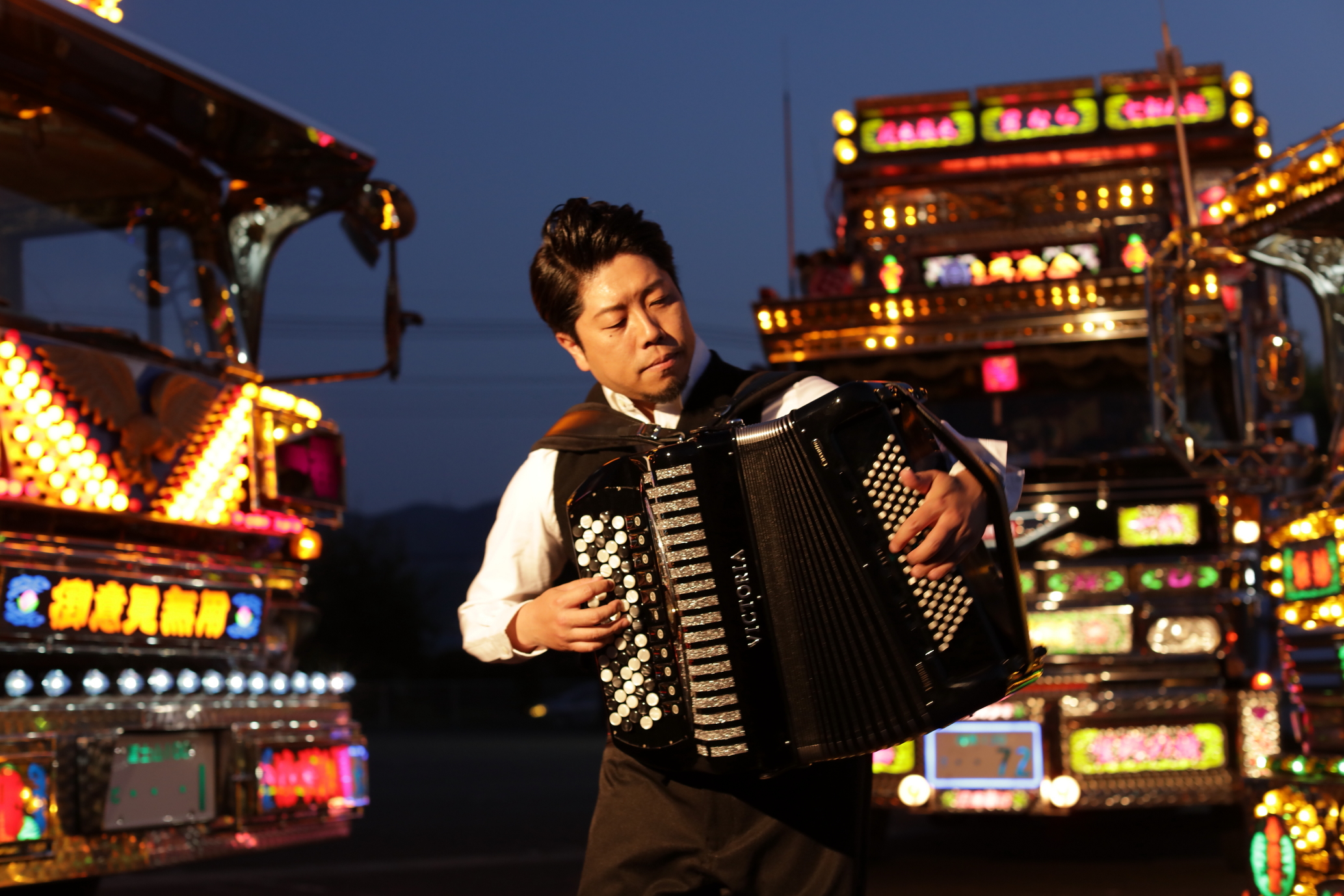
撮影:大崎 聡 / ヘアメイク:鎌田 真理子 / スタイリスト:露木 藍 / Direction:蛇腹党
衣装:ARCH∧BES(アークビス)https://archbes.official.ec(その他) jabara Party
撮影協力:全国 哥麿会http://utamarokai.com/
檜山学 ボタン式アコーディオン奏者
1976年5月 生
幼くして父親の影響でアコーディオンを始める
高校在学中に本格的にアコーディオン奏者を志し、高校卒業後、渡欧。
イタリア・フランスにて約8年間の留学生活を送る。
G.Fassetta、F.Deschamps、B.Perreyに師事。
1996年、日本人初出場となる全イタリア・アコーディオンコンクールにおいて、
優勝を飾り、アコーディオン界にその名を轟かせた。その他、数々の国際コンクールで受賞。
2003年から拠点を東京に移し、様々なライブパフォーマンスを展開しながら、
イタリア、チリ、ロシア、スイス、など国外での演奏活動も行っている。
彼の繊細かつ超絶技巧な演奏スタイルに魅了され、ミュージシャンや演出家など、様々なアーティストからのオファーを受け、
レコーディング、サポート、ダンサーとのコラボレーション、舞台音楽への参加もしている。又、後進の育成にも力を注いでいる。
2016年以降、世界最高峰である、CMA世界アコーディオン・コンクールにおいて日本代表の審査員を務める。
2007年にテディ熊谷とのデュオユニット〈Orso bruno〉から「ORSO BRUNO」
2010年に「ORSO BRUNO二枚目」をリリース
2011年に全曲オリジナルのリーダー・アルバム「Debut」をリリース。
2013年にヨーデル歌手、伊藤啓子とのデュオ・アルバム「Kotoba-asobi」をリリースしている。
個人のサイトhttps://www.facebook.com/manabu.hiyama
個人レッスン
東京、名古屋、岡山にて不定期でやっています。
お問い合わせは「蛇腹党」まで。
(English)
Q: You are especially highly regarded for your technique. Is there any accordionist who you consider to be your hero, someone you aspire to be like?
Hiyama: Not at the moment. I don’t know how to say it, but in the past, I wanted to be able to play in a particular way, or to be like a certain player. There are so many amazing players, but now I don’t feel like I want to be like someone else.
Q: What difficulties and problems have you encountered as a world-class professional accordion player?
Hiyama: I think this hold true for all accordion players, but transporting the instrument! It’s a major problem (laughs). Especially when you fly. Apart from that, it can be difficult to get people to understand the technical difficulties of playing the accordion, because it is a relatively rare instrument. People often think anyone who can play the piano can play it, or it’s fun to play, because we are standing and moving when we perform. Sometimes it makes me angry, because their comments sound so condescending. In some countries, the accordion is called the poor man’s piano! I wish people understand that it’s an instrument worthy of academic study. But I guess I have to play so well so that I just blow them away!
Q: Is there anything that you experienced because you play the accordion? Can you tell us about unusual or memorable gigs?
Hiyama: I met almost everyone I’m in contact with today thorough the accordion. I’ve been playing since I was a child. I can’t imagine what my life would be like otherwise. But I think it’s because I play the accordion that I’ve stood on the same stage as people I normally only see on TV and people who I’ve admired as a fan. The photo shoot today, for example. Fancy being photographed with the Ichibanboshi truck from the movie series, which I loved as a child. It’s like being on the set of my favorite movie!
Even in the same live performance, sometimes you stand at the front of the stage and at other times behind other musicians (not that this is specific to accordion, of course). My impression of a gig is constantly changing. Every gig is memorable and different. It’s a fascinating job.
Q: Many people begin playing the accordion as adults. What’s the best way to improve?
Hiyama: To be honest, you just have to practice! Of course, nobody wants to hear that (laughs). Well, the most important thing is to love the instrument. Nothing is more powerful than love. If you love what you do, you will be keen to learn and explore, and you’ll watch and listen to all kinds of videos, audio recordings, and live performances. It’s also important to imitate others. Start by copying someone first. Observe carefully how they play and listen to the sound they make. As well, you should have an image or ideal of how you want to play. It doesn’t matter how good your teacher is, you won’t improve unless you have an inquiring mind.
Q: You studied in Italy and France. Did your musicality and values change after that?
Hiyama: I hope that my musicality has matured since then! Italy was the first overseas country I visited. After that I went to France. I feel a bit embarrassed about it now, but at one stage I wanted to immerse myself in the country that I was in, but then went through a period of feeling very conscious of being Japanese. I developed new value systems at each stage, only to lose them at the next stage. To be honest, now I have no idea if I grew as a person or my values changed after studying overseas, or whether the experience influenced my music. I can only live life as me, so I’m just being myself (laughs).
Q: I see. As someone who has studied overseas, what do you think of accordion education in Japan?
Hiyama: I think more teachers are beginning to teach musical matters, but I think we need more people who teach solid playing technique. By that I mean how to play more rationally, how to move your fingers and how to handle the bellows. Also how to play stylishly, and hand positions that are pleasing to the eye. We should be aware of how we look on stage and other performance skills.
Q: It’s true that there are still few opportunities to learn the accordion in Japan. Finally, do you have a message for people who want to start learning to play?
Hiyama: I’m waiting to meet the accordion virtuoso of the future! More seriously, don’t see the accordion as just an unusual instrument. You don’t have to play anything really difficult. Just study how to play it well. There are many players of other instruments who are like that, but not among players in Japan. First, aim to play standard music competently, with sound technique. Play what anyone can play, but play it well. Although what you play is important, how you play is also important. However stylish the design of your house, if it’s built on sand, it will collapse. The basics are all-important. That sounds cool, doesn’t it? (laughs)

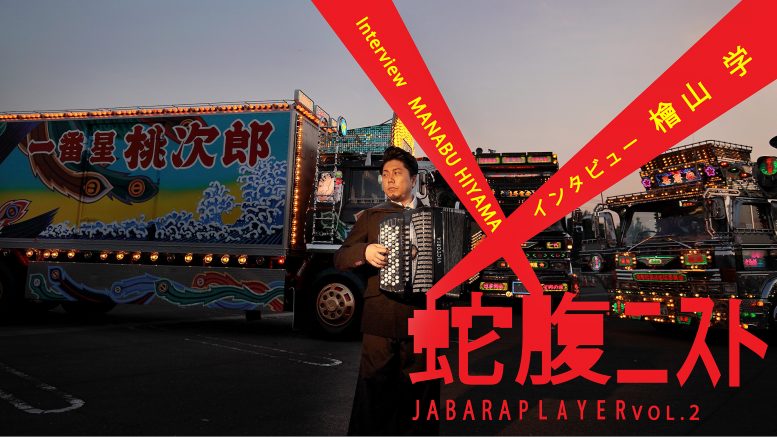
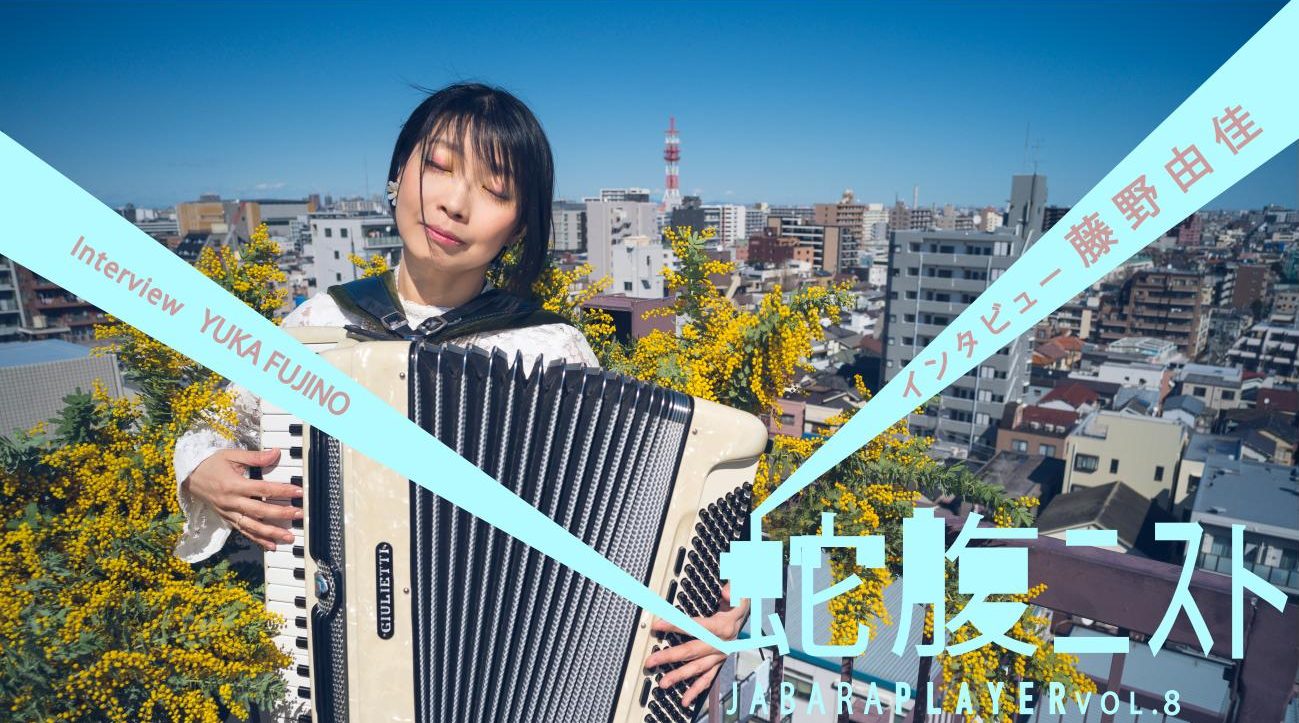

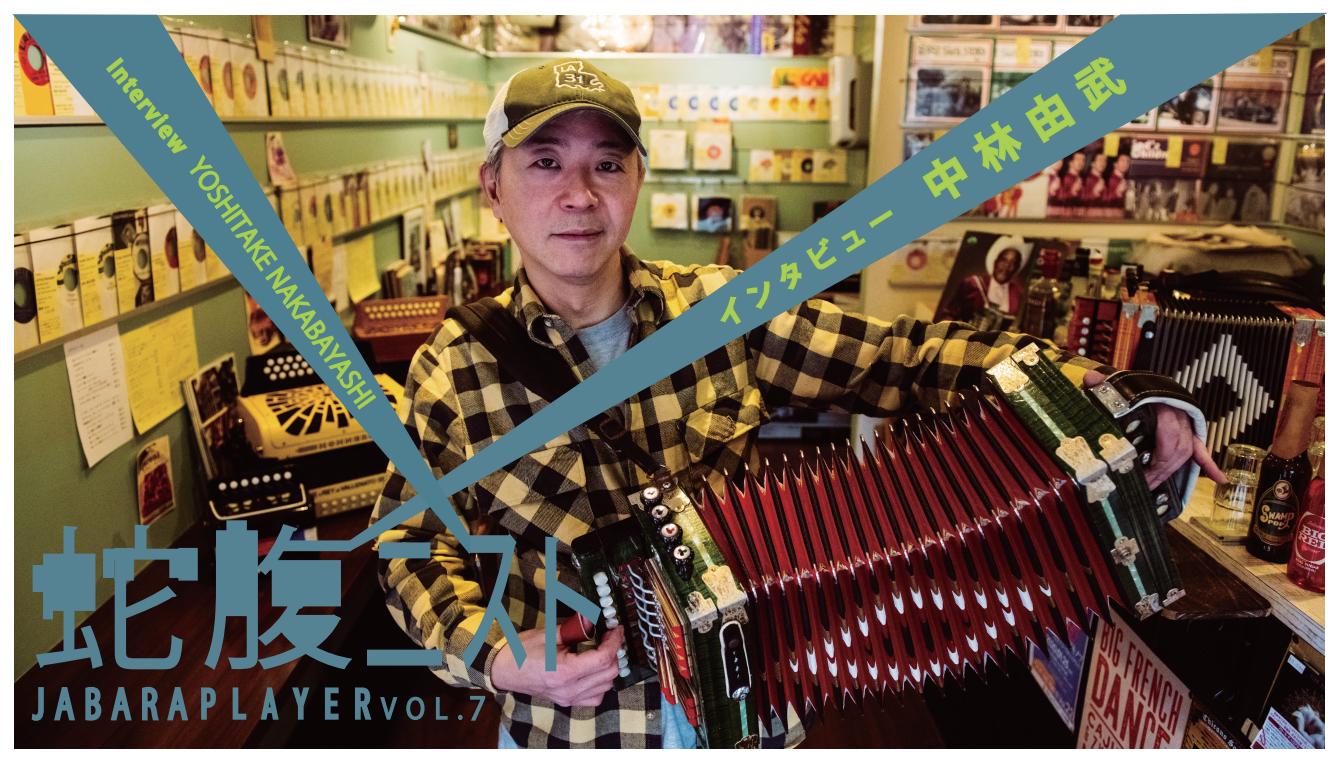
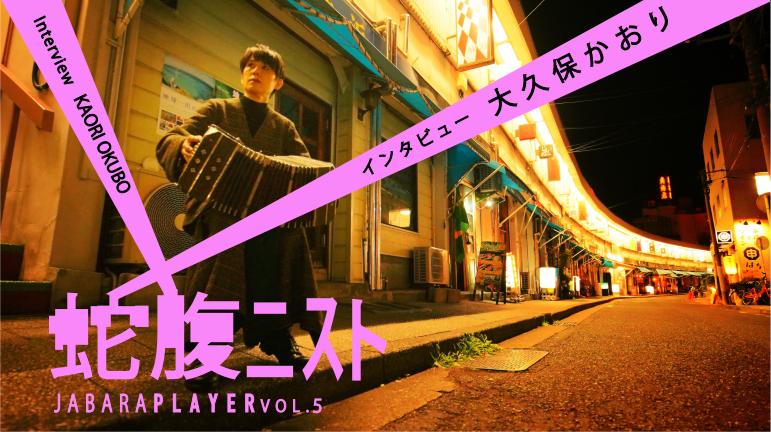
最初のコメント "Interview Vol.2 檜山学[ボタンアコーディオン]Manabu Hiyama[ChromaticAccordion]"